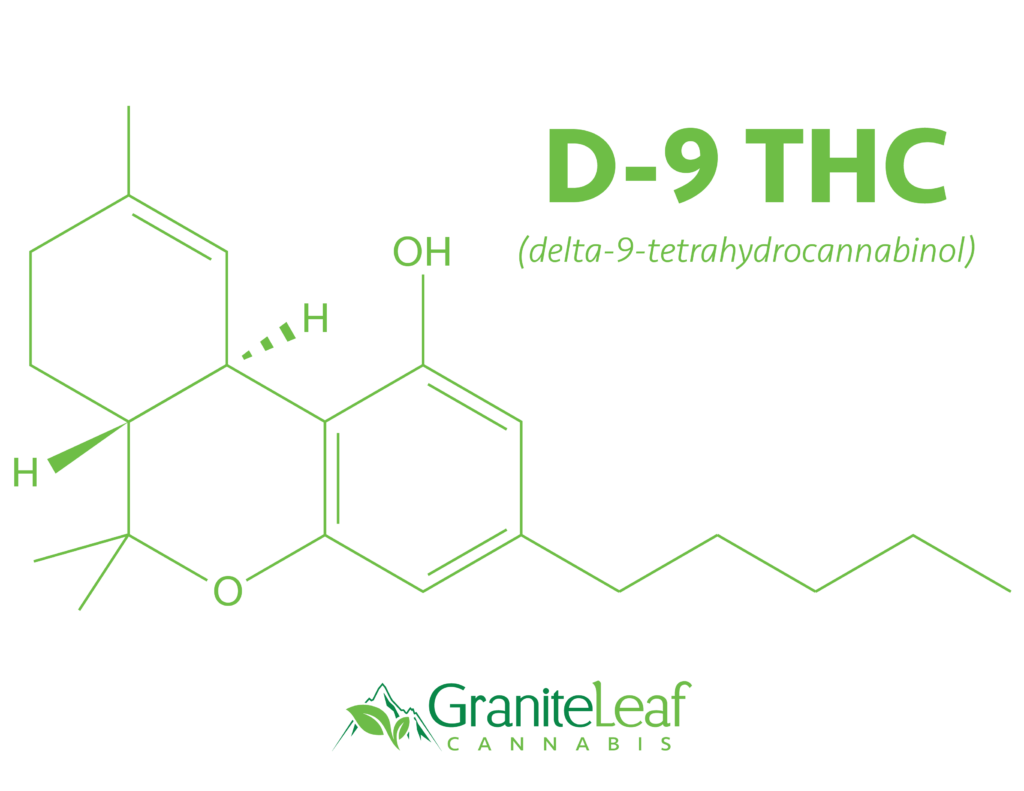DeLTA-9 THC: WHAT IT IS, WHAT ARE THE BENEFITS, AND WHERE IT'S FOUND.

What is Delta-9 THC?
Delta-9 THC (also known as D9 THC or THC) is the most popular cannabinoid in cannabis. It is a psychoactive compound and is responsible for the “high” feeling people get from most cannabis products. There is more than just one type of THC including Delta-8 THC, 11-hydroxy-THC, and several other less common ones. D9 THC has been shown to be beneficial for anxiety, appetite, depression, glaucoma, headaches and migraines, nausea and vomiting, muscle spasms, pain, PTSD, and sleep.
Potential Therapeutic Benefits for Conditions and Symptoms
Many people use D9 THC products because they find it calms their minds and reduces anxiety. However, this cannabinoid may also increase anxiety, especially when too much is consumed. A combination of CBD and D9 THC may be great for relieving anxiety instead of increasing it.
THC is well-known for its ability to stimulate appetite. Both D9 THC and D8 THC have appetite-stimulating effects that may be good for people with cachexia, cancer, Crohn’s disease, eating disorders, IBS, Ulcerative Colitis, and any other condition that decreases appetite. Sometimes, an increased appetite is a benefit, and other times it’s a negative side effect.
Cannabis products with THC have potential benefits for people with depression by improving symptoms. People have found that D9 THC can distract them from negative thoughts, elevate their mood, enhance appetite, improve sleep, and reduce stress. For many, sativa-leaning cultivars tend to be better for helping with depression.
Although the research on it is limited, cannabis has been found to help people suffering from different headache disorders and migraines. Both D9 THC and CBD have been found to help reduce the severity of headaches, especially when used together.
Scientific studies have found that both D9 THC and CBD may help people with glaucoma. It can do so by lowering intraocular pressure, the most significant risk factor for glaucoma.
Cannabis is commonly used to help with nausea and vomiting. Several studies have found D9 THC to be effective in reducing both nausea and vomiting, especially when it is chemotherapy-induced. In addition to D9 THC, the other cannabinoids with anti-nausea and vomiting properties include D8 THC and THCA.
For people who have muscle spasms, especially as a symptom of MS (multiple sclerosis), cannabis products with D9 THC may help. One study found that 10mg D9 THC ingested orally helped reduce spasticity in a majority of patients.
The most common use of therapeutic cannabis is for treating pain. D9 THC has been found to help with chronic pain from many conditions especially for people with arthritis, cancer, fibromyalgia, MS, neuropathy, and pelvic pain.
PTSD (post-traumatic stress disorder) is a condition that many people find cannabis containing D9 THC to be beneficial. Most of the understanding of the benefits of cannabis for PTSD comes from patient-reported studies, especially from military veterans. D9 THC products may help improve symptoms including anxiety, fear response, flashbacks, hypervigilance, irritability, mood, and sleep.
D9 THC products help a lot of people with sleep, especially for people with chronic pain, insomnia, and sleep disorders. Smoking and vaping cannabis as well as tinctures work well for falling asleep and edibles work well for staying asleep. Many people prefer Indica cannabis cultivars for nighttime because they find they are more calming, relaxing, and sedating.
Possible Side Effects of Delta-9 THC
- Anxiety
- Decreased cognitive function
- Dizziness
- Dry eyes and mouth
- Fatigue
- Increased appetite and food intake
- Memory loss
- Paranoia
- Rapid heart rate
- Reduced coordination and reaction time
Where is Delta-9 THC found?
Although D9 THC is found naturally in the cannabis plant, most cannabis flower only has a small amount. The cannabinoid THCA is the compound cannabis produces that turns into D9 THC through a process called decarboxylation. Think of THCA as cookie dough, which has its benefits, but when baked, it creates the D9 THC “cookie” most people want. When the cannabis flower is heated, like when it is smoked or vaporized, the THCA turns into D9 THC. Some concentrates are decarboxylated and have high concentrations of D9 THC while others will have more THCA that will decarboxylate into D9 THC when it is vaporized. To create D9 THC tinctures and edibles, the cannabis flower is turned into a concentrated oil which is heated to convert all the THCA. When edibles with D9 THC are consumed, the body will process it and convert it into 11-hydroxy-THC which is the main reason why edibles have different effects than smoking or vaporizing cannabis.
Products Containing Delta-9 THC
Check out our menu if you’d like to view our current selection. The cannabinoid content is listed for each product in the description.
Disclaimer: This is an educational document and is not intended to be taken as medical advice. Please consult your medical provider if you have questions related to your healthcare.
Updated June 27, 2024
